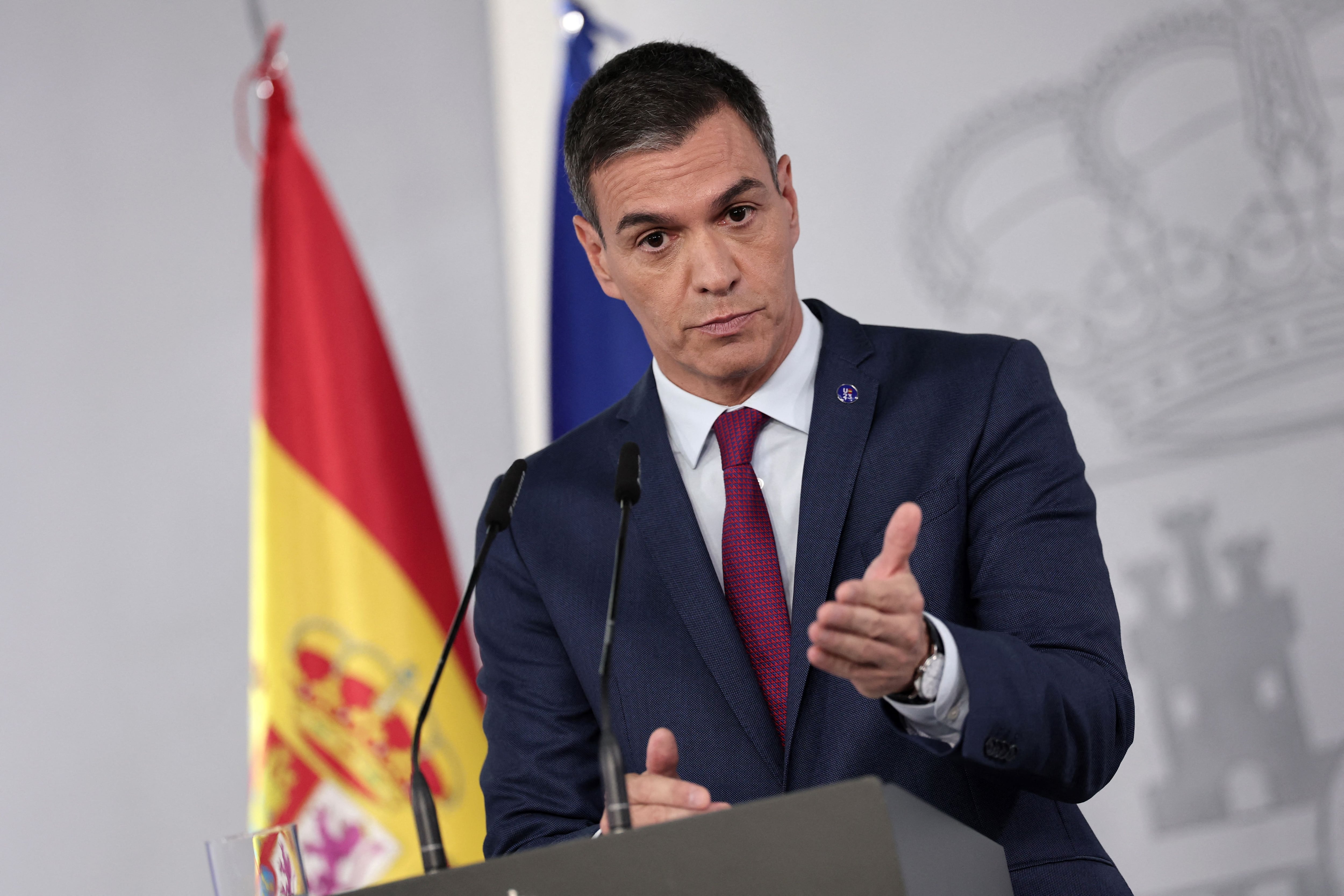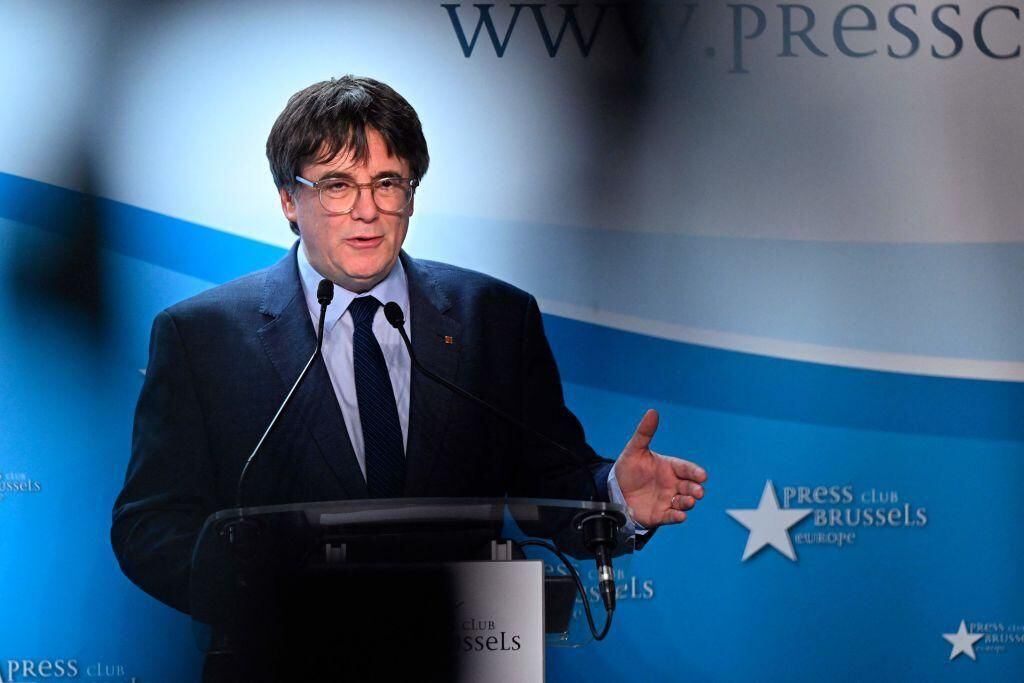The investiture of Pedro Sanches for a new term as head of the government of Spain got the green light this Thursday amid high political tension. To achieve this, the leader of the Spanish Socialist Workers’ Party (PSOE) signed a controversial pact with the Catalan independence movement party Carles Puigdemont, who fled to Brussels in 2017 after the failed attempt to separate from Catalonia and who managed to have his main supporters accepted the demands.
TO LOOK: Pedro Sánchez’s agreement with Catalan separatists that sparked protests in Spain
After weeks of intense negotiations, the PSOE reached an agreement in the Belgian capital with the seven votes of the Junts per Catalunya formation that were essential for its center-left coalition to remain in power, but, in return, accepted an agreement that includes a amnesty bill for those involved in the separatist process. The controversial measure sparked protests in several Spanish cities in recent days and was harshly criticized by several sectors, mainly from the opposition and the radical right.
“Spain lost, the independentists are winning and the PSOE has disappeared”, said Alberto Núñez Feijóo, leader of the Popular Party (PP), which, although it was the group with the most votes at the polls in July, did not obtain parliamentary support to win with power.
The pact represents a major boost to Sánchez’s chances of forming another left-wing coalition to govern as a minority. The acting head of Government also has the support of the left-wing Sumar formation, with which he has governed in coalition until now, and other Catalan, Basque and Galician nationalist and independence forces.
The signing between the PSOE and Junts per Catalunya has come to an end as the deadline approaches. If it is not possible to form a government by 27 November, parliament will be dissolved and elections will be called for January. The vote would be next week.
These are the most controversial points of the agreements between the socialists and the Catalan independentists.
To obtain the support of Junts and his rival Esquerra Republicana de Catalunya – whose support he obtained last week -, Sánchez accepted their demand to promote an amnesty law for their leaders and activists prosecuted by Spanish justice, mainly for his involvement in the separatist attempt six years ago.
The amnesty would benefit Puigdemont and dozens of people, from low-level officials to ordinary citizens, who have found themselves in trouble with the law due to their role in the separatist attempt.
The agreement document establishes that the future amnesty, although it does not include “names”, will be for all those related “directly or indirectly” to the independence process “between 2012 and 2023”.
Puigdemont warned that the stability of the Spanish Government in the next legislature will depend on “permanent negotiation” with the PSOE, as “an uncertain path is opening up, full of difficulties”.

Also supported by the extreme left and Basque parties, the amnesty law should be approved by Parliament, as soon as Sánchez is sworn in by deputies, scheduled for next week.
The PP and Vox are strongly opposed to amnesty and have called for demonstrations across Spain to reject the measure, which many members of the judiciary are also opposed to. It will likely be subject to review by Spain’s Constitutional Court.
“Spain lost, the independentists are winning”, thanks to their “blackmail”, launched Alberto Núñez Feijóo, while the head of Vox, Santiago Abascal, denounced “the beginning of the end of democracy”.
The agreement also includes the beginning of talks on the “national recognition of Catalonia”. Junts said he will promote a self-determination referendum on Catalonia’s political future under the protection of the Constitution.
For this reason, a table was agreed with an international mediator where Junts will demand a referendum, a request that the PSOE rejects.
“Despite having agreed to negotiate with the PSOE, Puigdemont always maintained the self-determination referendum as his objective. Even Pere Aragonès, president of the Generalitat, stated in his speech to the Senate that amnesty “is the starting point; destiny is to vote for independence”, says the newspaper “El Mundo”.
The last point of the agreement refers to the “stability of the legislature” and establishes that it will be “subject to the progress and fulfillment of the agreements resulting from the negotiations”.

Puigdemont has already warned Sánchez that stability “will have to be achieved day by day”, which puts pressure on the PSOE, which sought to achieve a legislative pact rather than an investiture pact with the pro-independence parties.
“Unlike the last legislature, in which Pedro Sánchez had stability guaranteed from the beginning, now agreement will have to be achieved by agreement, day by day. Without compliance, the legislature will have no direction and will end up in the dustbin of History”, warned Puigdemont.
Source: Elcomercio
I am Jack Morton and I work in 24 News Recorder. I mostly cover world news and I have also authored 24 news recorder. I find this work highly interesting and it allows me to keep up with current events happening around the world.

:quality(75)/cloudfront-us-east-1.images.arcpublishing.com/elcomercio/ZEEP5GABOFDFRBTPLPGEGGNHLU.jpeg)



:quality(75)/cloudfront-us-east-1.images.arcpublishing.com/elcomercio/BUNML4TQNVHSBOBMY5FC3QEM2M.jpg)

